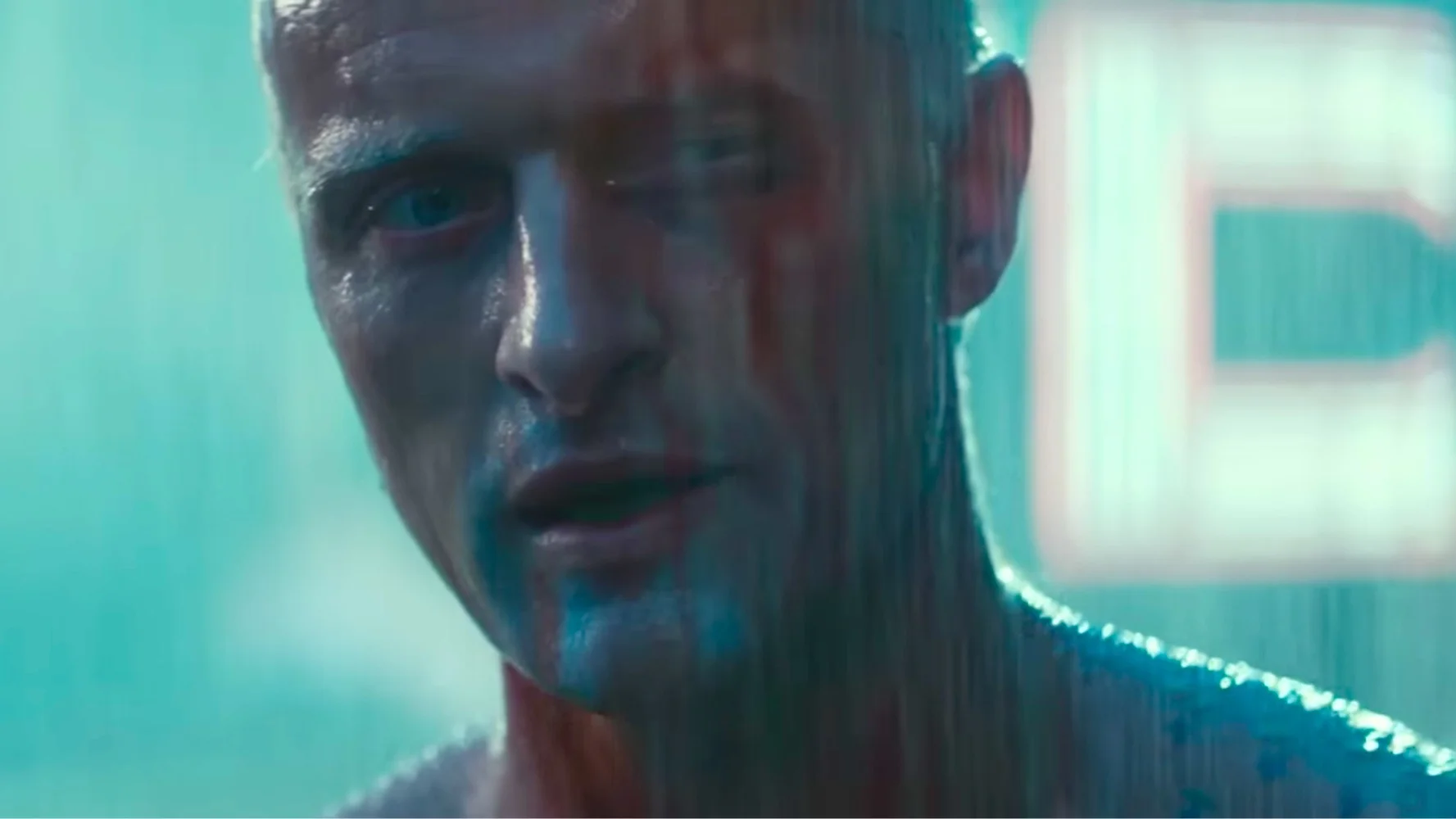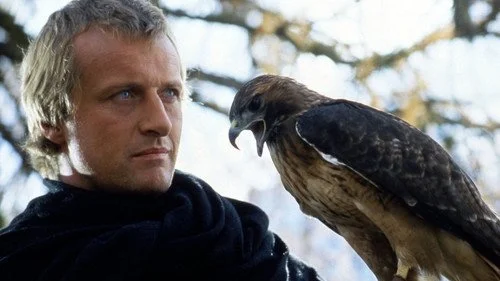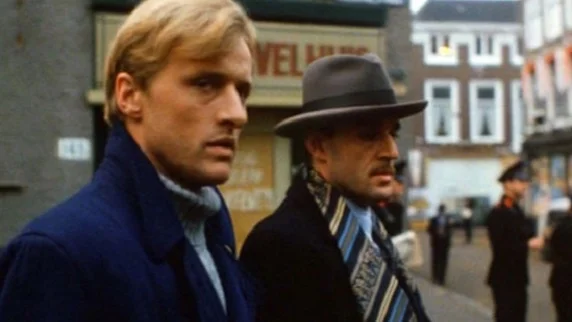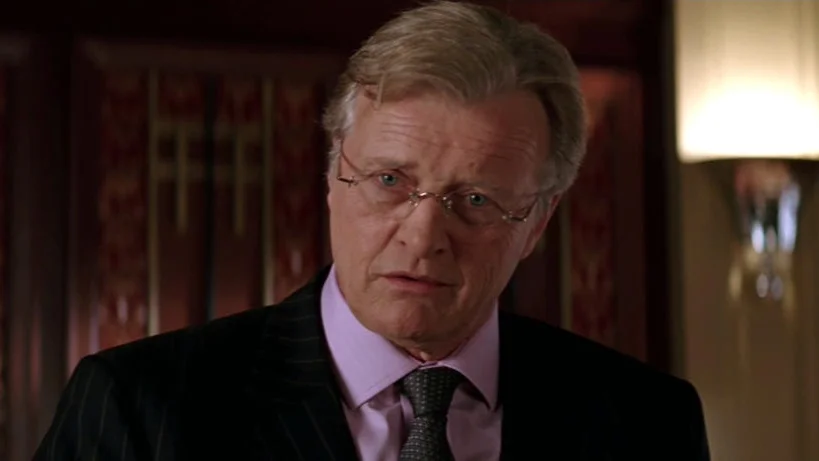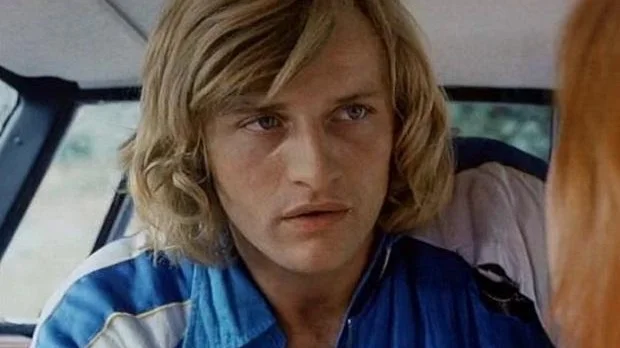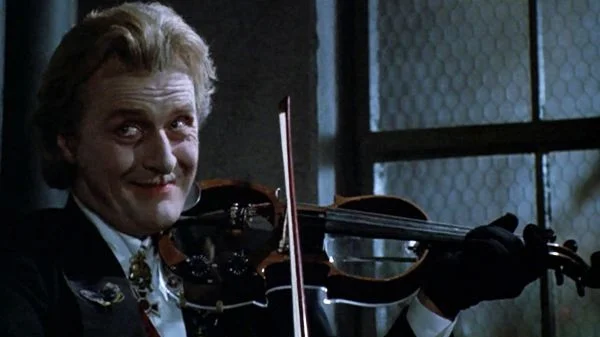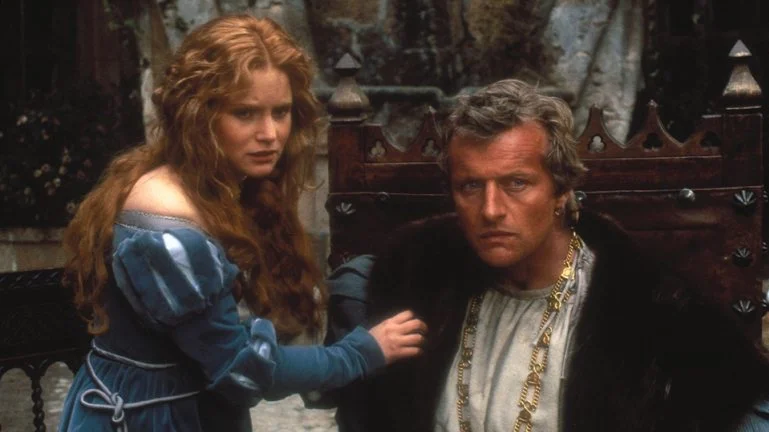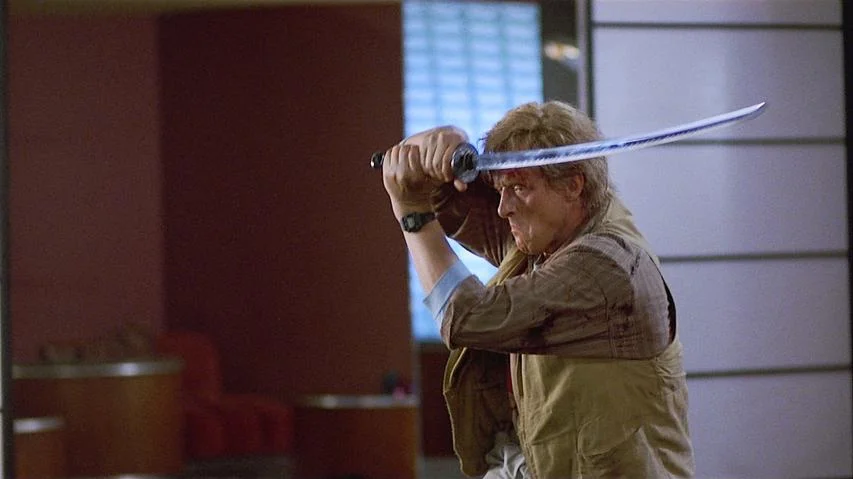Remembering Rutger Hauer (1944 - 2019)
One of the undeniable greats, Rutger Hauer passed away last Friday at the age of 75. Throughout his career he worked with some of the great filmmakers of our time, from Paul Verhoeven to Ridley Scott to Christopher Nolan, and he always impressed. It was hard not to be enraptured by those steely blue eyes and his authoritative demeanor. A singular talent, we at Talk Film Society have gathered together to remember one of our favorites, an actor who always left a lasting impression.
Blade Runner (1982)
Ridley Scott's third feature is one of the best science fiction films of the last 40 years with indelible images and a story that's timeless. That said, it wouldn't be the same and it certainly wouldn't be one of my favorite films of all time without the mind-blowing performance by Rutger Hauer as replicant Roy Batty. Famously writing his own final monologue, the ‘Tears in Rain’ speech, it added layers to the character and the film itself. As good as the picture is, it's hard to imagine it without Hauer, who really became Batty during the course of filming. Thanks to him we have one of the best moments in a sci-fi movie that I can recall, one that stands up there with anything the genre can throw at you.
- Matt Curione
Ladyhawke (1985)
When I was young and DVDs were a brand new thing, one of the first my family owned was Richard Donner’s fantasy film, Ladyhawke. In it, Rutger Hauer plays Captain Etienne Navarre, a mysterious knight who’s cursed to be forever apart from the love of his life, Isabeau (Michellle Pfeiffer).
Navarre was one of the first heroic leading men I’d ever seen, and I think, as far as those go, he’s a damn good one. It’s easy for the knight-in-shining-armor trope to fall flat onscreen; they’re too proud or proper or full of machismo. Instead of a caricature, Hauer is able to round out Navarre into a person with real emotions beneath the bravado. He has a sense of humor, he cries, he screams in anger and frustration, and, most importantly, he deeply loves Isabeau. Hauer brought heart to a character that might usually be a stereotype, and that shaped my expectations for all future leading men on film.
- Callie Smith
Soldier of Orange (1977)
If someone asks me about great war movies and I know they’re historically savvy and already gone through the classics like Platoon, Paths of Glory, The Thin Red Line, etc. I always go to Soldier of Orange. Paul Verhoeven and Hauer strike a balance of wartime epic and slick espionage thriller in realizing this story of WWII from a Dutch perspective. Hauer leads us through the labyrinthine narrative where his Erik Lanshoff goes from naive recruit to idealistic soldier, evolving into a spy clandestinely weaving through borders, checkpoints and outing Nazi agents, and winning the war. Wartime idealism isn’t easily conveyed in cinema outside the (often problematic) realm of propaganda, but Hauer’s driving energy and diverse charisma will have you rooting for the titular soldier in one of the breeziest 2 and ½ hour movies.
- Alex Miller
Batman Begins (2005)
While Rutger Hauer always shined in lead performances (Flesh and Blood, Eureka, or The Hitcher) his supporting performances have always made significant impacts as well. One such case is Batman Begins, a movie that has been hailed as many things, but a Rutger Hauer movie was never one of them. In the popular 2005 reboot of the Batman franchise, Hauer played William Earle, successor of Thomas Wayne as head of Wayne Enterprises, a man who begins the film by telling young Bruce Wayne that his company would be waiting for him when he comes of age. Later he shows his true nature by taking the company public and firing Lucius Fox, one of Wayne’s most trusted allies. It’s a terrific (albeit small) role, and yet Hauer brings a significant charm and sense of memorability only he could’ve brought to it.
- Ben Lane
Turkish Delight (1973)
With so many great titles to choose from, his collaborations with fellow Dutch native director Paul Verhoeven stand out the most in my mind. My introduction to Hauer’s early career arrived with the ribald and explosive Turkish Delight. Sexually frank and loaded with passion, Hauer’s youthful exuberance and rebellious spirit explodes from the screen in every scene and in tune with Verhoeven’s propulsive direction. Rutger Hauer’s image might be synonymous with genre pictures whether they be action, sci-fi, or horror flicks, but he’s just as vibrant in this mercurial tale of young love and defiant sexuality.
- Alex Miller
Buffy the Vampire Slayer (1992)
I was first introduced to Rutger Hauer in 1992’s Buffy the Vampire Slayer as the original Big Bad, master vampire Lothos. It still boggles my mind that he and Donald Sutherland agreed to do a movie called “Buffy the Vampire Slayer”, but I’m more than glad they did. Although the movie didn't land as well as the TV series did a couple of years later, it still had its moments and a lot of those belong to Hauer. The perfect mixture of comedy and menace in his performance makes Lothos completely different than vampire villains in previous films. Him showing up in Buffy’s bed during one dream sequence still unnerves me. Hauer’s role set the blueprint for all the Big Bads after him and I thank him for that.
- Carlo DiMicco
Flesh+Blood (1985)
After seeing the more well known Verhoeven/Hauer feature, Flesh+Blood, it’s borderline shocking that Hauer wasn’t cast more as a romantic lead in Hollywood. Sure he’s on the covers of plenty of action flicks with guns and headbands, and he’s a wonderful heavy in countless titles, but his brawny swagger and disarmingly suave but grizzled demeanor perfectly fits the medieval swashbuckling that makes Flesh+Blood so unforgettable. In an era where period films were getting the Boorman/Polanski makeover (thanks to Excalibur, and Macbeth) Rutger Hauer proved that he was the punk rock answer to Errol Flynn, a virile anti-hero who could hack his way through a siege, get dirty, scraped and bruised and still look damn good doing it.
- Alex Miller
Blind Fury (1989)
Rutger Hauer is an actor who wears many faces. Some are sinister (The Hitcher), poetic (Blade Runner), or vengeful (Hobo with a Shotgun) while others, well, are downright goofy! His near slapstick turn as Vietnam vet turned blind swordsman in Blind Fury is the perfect example of a character actor showing range even a marksman couldn’t hit. Directed by Philip Noyce, an Australian director whose filmography reads like the paperback section at a Michael’s Craft store, Blind Fury features Hauer turning limbs into sushi while maintaining a hapless persona that’s anything but furious. As Nick Parker, a disabled swordsman who must protect the son of a war vet (played by Terry O’Quinn), Hauer slices and dices with both sword and satire in what amounts to a Three Stooges performance played for keeps. While a remake of 1967’s Zatoichi Challenged, in which a man must rescue the son of a widower, Blind Fury is a film that entirely rests on the sword of Hauer’s performance, one that shows the prolific nature of a character actor who simply enjoyed being in front of the camera.
- Greg Mucci


